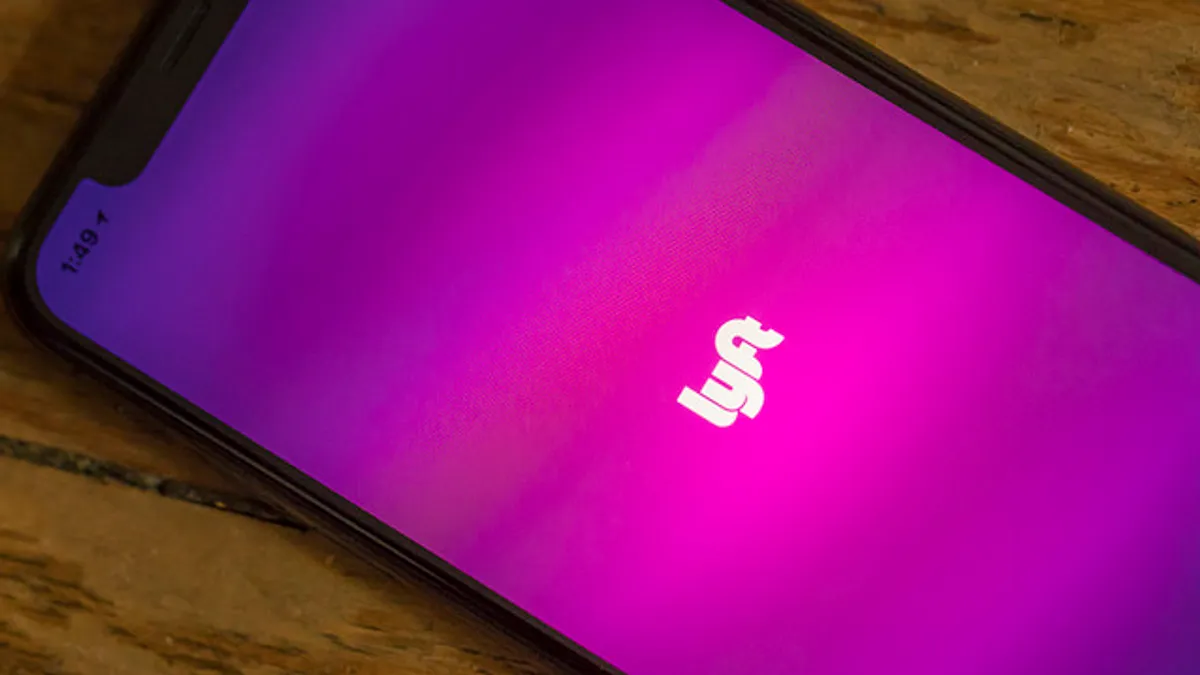Dive Brief:
- Lyft has acquired London-based augmented reality (AR) company Blue Vision Labs as it ramps up Level 5, its automated driving unit. A blog post from Luc Vincent, Lyft’s vice president of Autonomous Technology, said the acquisition — Lyft’s first — will "significantly accelerate our efforts toward developing safe and reliable autonomous transportation" by working on cameras and mapping software.
- Blue Vision Labs creates 3D maps of cities based on crowd-sourced images from car-mounted camera phones, down to centimeter-level accuracy. Lyft says it is data that can’t be replicated through GPS or satellite maps.
- The AR software could also be applied to other Lyft products, for example allowing customers to hold their phones up and see information on their ride-share vehicle as it approaches.
Dive Insight:
Lyft is rapidly growing its autonomous vehicle (AV) division, as questions swirl around competitor Uber's self-driving operations. Lyft also unveiled a Ford Fusion test vehicle, a similar vehicle that other competitors are using to test AV technology.
After opening Level 5 in the summer of 2017, Lyft’s AV division now employs some 300 engineers and researchers, including alums from Waymo, Apple, Tesla, Ford and Google, and it recently opened an office in Munich, Germany. The company already has test cars running in California, and Vincent said Lyft expects to double the size of its team in the next year.
The Blue Vision Labs acquisition shows that Lyft is getting serious about a particular challenge for AVs — mapping and imaging data to ensure that the cars know where they’re going in a city. Automakers are snapping up sensor companies to work on more advanced LiDAR systems that will help cars “see” on the roads, and help cities map their streets. Two former Apple engineers recently unveiled an advanced LiDAR system from their startup Aeva, which they say can offer more data at a lower cost.
As automakers and tech companies race to get AVs on the road, Lyft holds an interesting position in the market. Many see ride-sharing as a possible application of AVs, since the same car could be used by multiple people throughout the day and reduce overall car ownership. Lyft’s aggressive push to work on its own autonomous systems could bring that future closer to reality.












